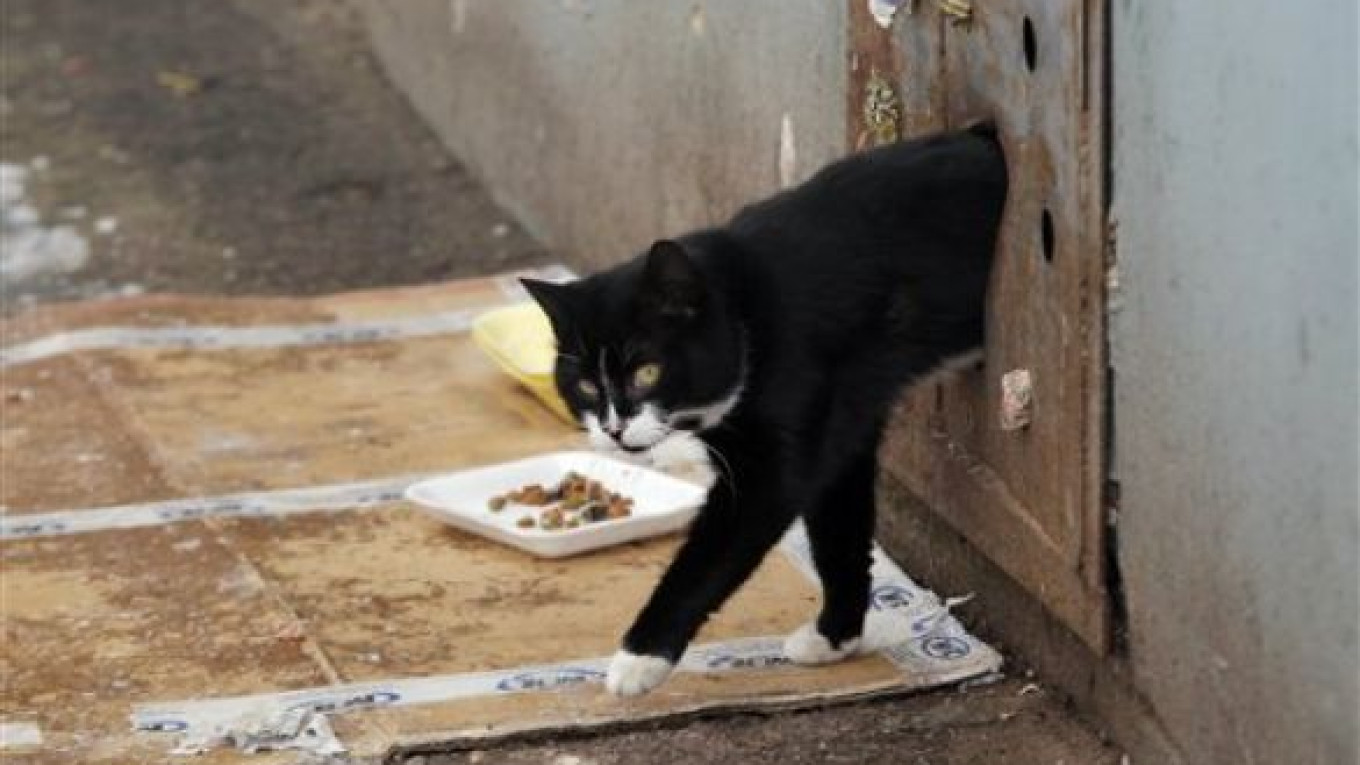MINSK — City authorities in the Belarussian capital of Minsk are carelessly trapping stray cats in locked basements, dooming them to starvation, animal activists say.
Elena Titova, leader of the animal rights group Protect Life, says the former Soviet nation has no long-term shelters to house stray animals. She estimated that about 9,000 strays have been killed in the Belarussian capital alone over the past three years.
“Killing the animals with impunity has become a government policy,” Titova said Monday. “This barbaric policy can be described as ‘No animal, no problem.’ They find it easier to kill them, as they don’t have to build shelters.”
City authorities say they must isolate the basements of apartment buildings in line with Soviet-era health rules to prevent rodents from getting in.
“Cats and residents will scream for a while and then they will calm down,” said Alexander Yubkov, a city worker who has welded iron covers on basement windows.
He said that if workers do not secure basements, “sanitary officials will come and order us to pay a fine.”
Minsk resident Karolina Litvinova said authorities do not bother to check whether there are any animals left in a basement before shutting it.
“My heart aches to hear how the animals that they have walled up are screaming day and night,” said Antonina Gayenko, 72, a retiree who was feeding some cats through small holes in the iron plates. “They have doomed them to death from thirst and hunger.”
Some residents have drilled bigger holes in the iron plates to allow the cats to escape. “We have saved five cats that have been walled up,” said Litvinova, who has urged authorities to prosecute some city workers on charges of animal cruelty.
Under a practice that has been followed since Soviet times, stray animals in Belarus are placed in shelters for five days and then killed by injection if owners don’t show up.
A Message from The Moscow Times:
Dear readers,
We are facing unprecedented challenges. Russia's Prosecutor General's Office has designated The Moscow Times as an "undesirable" organization, criminalizing our work and putting our staff at risk of prosecution. This follows our earlier unjust labeling as a "foreign agent."
These actions are direct attempts to silence independent journalism in Russia. The authorities claim our work "discredits the decisions of the Russian leadership." We see things differently: we strive to provide accurate, unbiased reporting on Russia.
We, the journalists of The Moscow Times, refuse to be silenced. But to continue our work, we need your help.
Your support, no matter how small, makes a world of difference. If you can, please support us monthly starting from just $2. It's quick to set up, and every contribution makes a significant impact.
By supporting The Moscow Times, you're defending open, independent journalism in the face of repression. Thank you for standing with us.
Remind me later.


